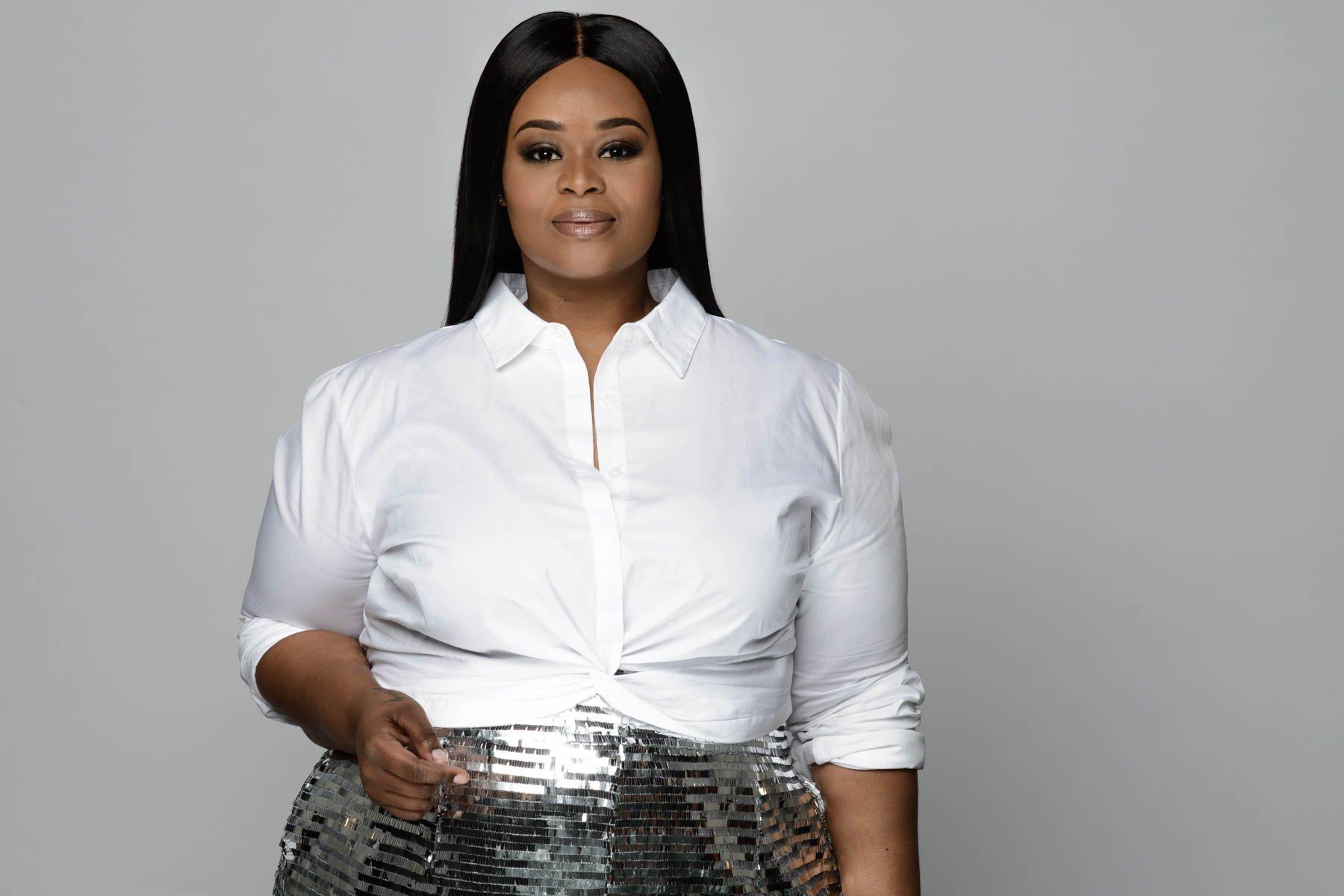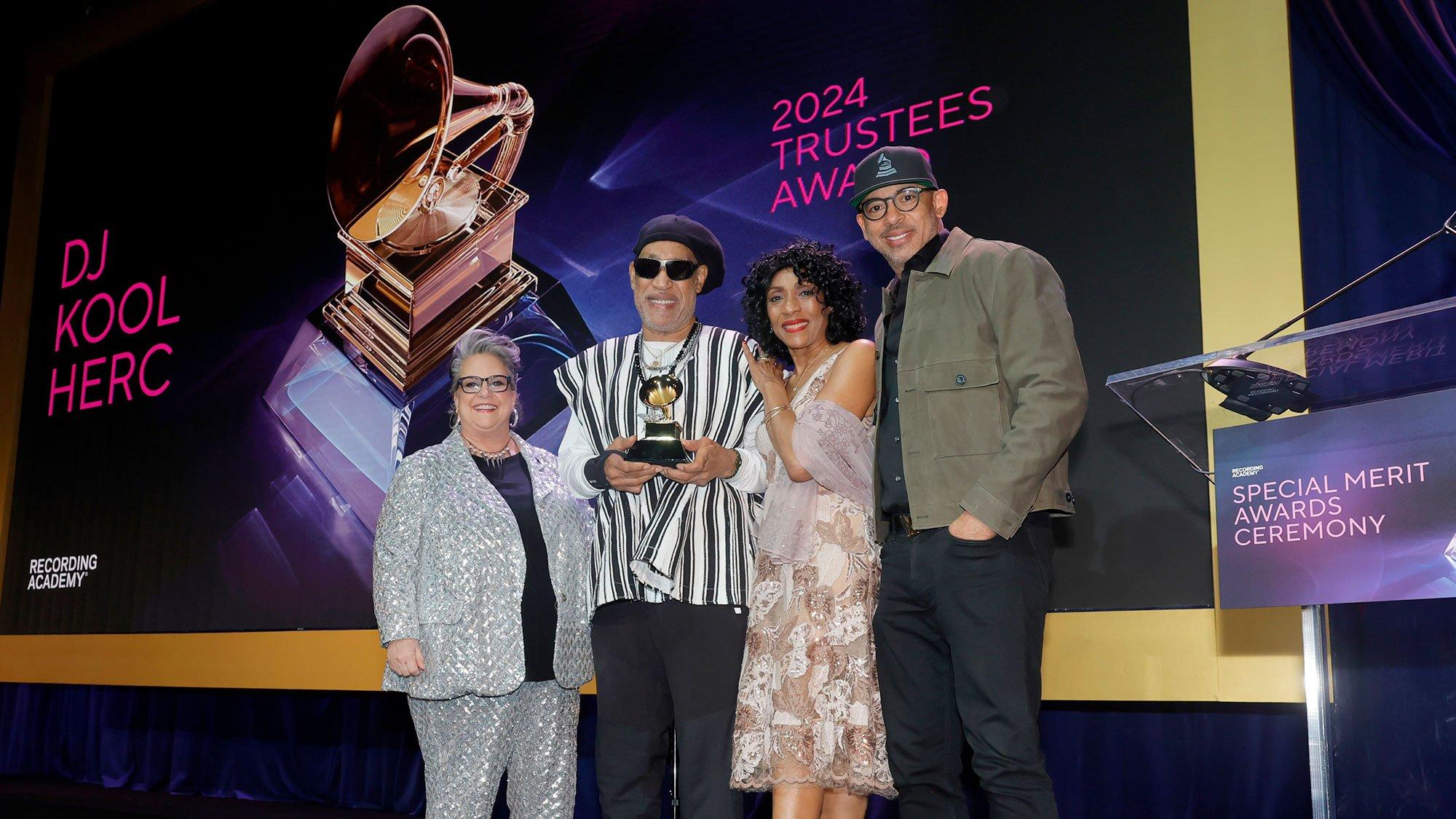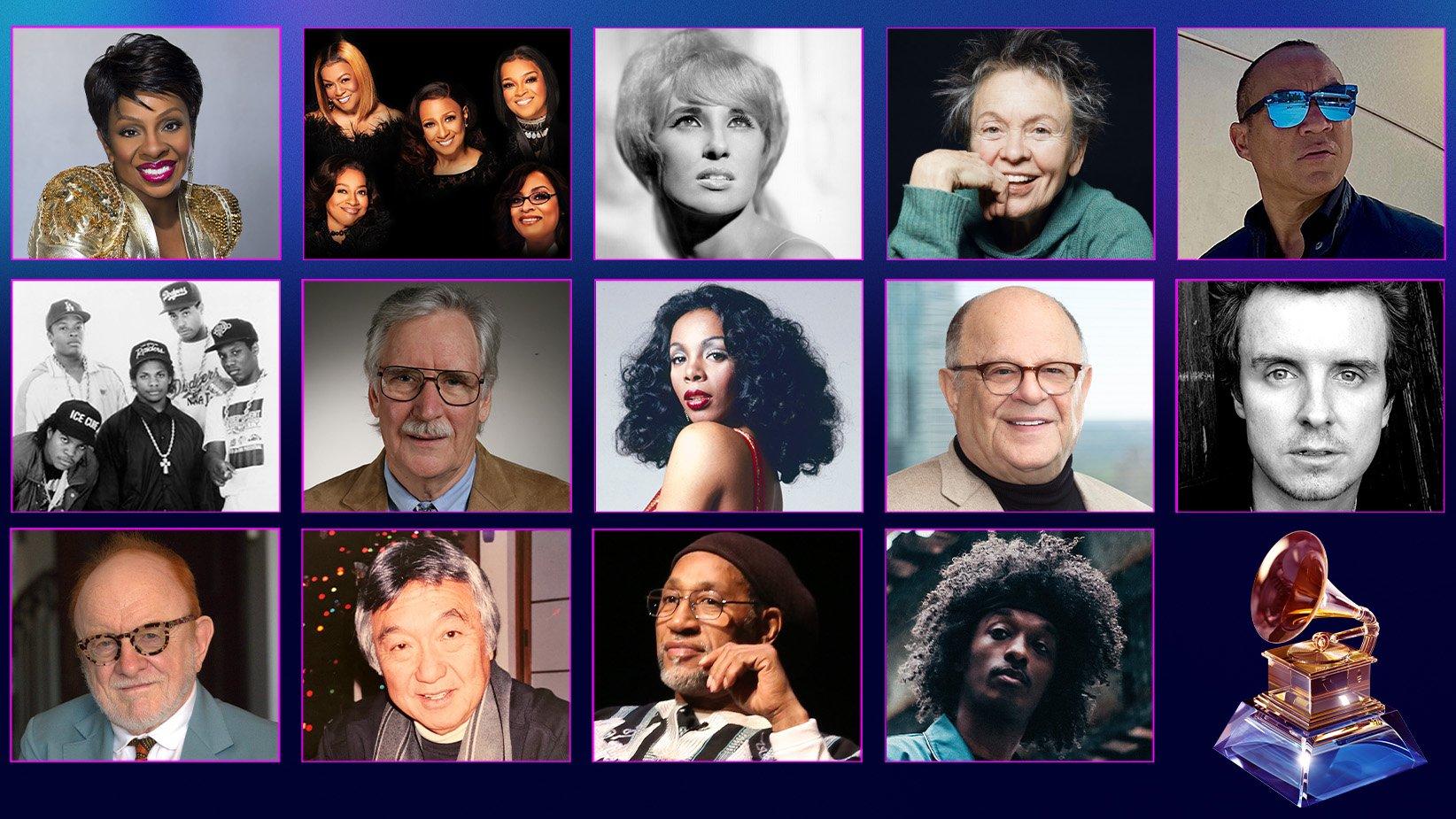Gospel singer Christina Bell is having a heavenly year. Not only has the Shreveport, Louisiana native recently released a chart-topping single called "Going," which is co-written by Isaiah Templeton and Shamarr Blake, and produced by D. Jamel Kimbrough, but Bell just wrapped filming the Lifetime biopic The Clark Sisters: The First Ladies Of Gospel, where she portrays Twinkie Clark.
Executive produced by Queen Latifah, Mary J. Blige and Missy Elliott, The Clark Sisters will premiere early next year. As she talks about it, Bell, who spent nearly two decades singing in the gospel group Zie'l with Crystal Kay Bell and Keyondra Shane Lockett, lets out a little yelp of excitement. First of all, AHHH!" she exclaims over the phone. "It's definitely a very thrilling and exciting adventure to be on right now. My first day, of course, I was super-duper nervous. But then it calmed down once I got the hang of it. It's been amazing ever since."
Now that she's wrapped shooting, Bell is working on her second solo album, which is due to arrive later this year via Malaco Records. The Recording Academy sat down with Bell to talk about everything she's been working on lately, including what we can expect on her upcoming solo work and what it was like to hang out with the real Twinkie Clark when preparing for her role.
<iframe width="620" height="349" src="https://www.youtube.com/embed/EvwmaREJSCw" frameborder="0" allow="accelerometer; autoplay; encrypted-media; gyroscope; picture-in-picture" allowfullscreen></iframe>
How long have you been professionally singing gospel, and what inspired you to pursue a career in it?
I actually started singing since I was a small little baby. I was in a singing group for about 20 years. The group was called Zie'l, and we got the opportunity to just travel so many different places all around the country, and then a little bit outside of the country, hitting Jamaica and doing different things like that. And it started when we were in church. We grew up together and sang in a small choir. It was five of us. They were the only people that came to the first rehearsal, and that's how we started the group. Shreveport, Louisiana was our hometown, and like I said, we grew up together in the same church just really, really excited about just singing. At one point we actually wanted to do R&B, but my mom was like, "Yeah, no. You're not going to do that."
I continued on with the gospel thing. But for the most part it's really, really been exciting to sing gospel music. Of course gospel is the good news, so I'm really excited to keep doing gospel music and getting his word out, so that's where it started for me.
You've been performing solo for about the last four years. What has your journey been like in deciding to pursue a solo career?
I definitely will say the experience is quite different from doing group music than solo music. It's a little bit strange when you first start out doing the solo career because you don't get the opportunity to look to your right and your left. I always say this: you look to your right and your left. These are your sisters that you've grown up with, and you just have so much chemistry with, and you know exactly where to go musically, and you don't really have to say anything. But you know how you give that look to somebody and you're like, "Okay, yeah. Let's go there." I didn't have that anymore. I had to carry my own weight. In the beginning it's very nerveracking because you don't know if people will accept you like they did with the group. It's almost like you're starting over. People don't really know you as much. You have some people that remember you from where you came from, but then you have a lot of people that are being introduced to you.
The downside [of performing solo] is more nerves. You tend to be a little bit more nervous when you have to go from being in a group to being a solo artist. But the upside to it is, you get used to it. And though my nerves almost get the best of me, I've learned how to put that in check. So, it feels very exciting to sing and to perform, and just do what I enjoy doing. I wouldn't trade it.
I know a lot of people ask me if the group will get back together, and I tell them I can't see it right now because it's freeing. You don't have to necessarily do what everybody else wants to do. You can actually get your brand out there.
I'd love to talk a little bit about the latest song, "Going." What was the genesis of that one?
This is one of those songs that you want to have written, but I didn't pen this song. This song was actually penned by Isaiah Templeton and Shamar Blake. They are really, really great friends. Shamar was actually in Walmart and God just placed that song in his heart about God's mercy. I think he even saw something going on in Walmart, or something like that, but God placed those words in his heart about his mercy constantly going and just keeping us. And though we don't have to continue doing the same things that we were doing, you get the opportunity to experience God's mercy in a really, really real way when you're going through life, when you've made a mistake or when something has happened and you just don't feel right about certain things.
I think it's really, really special that they got the opportunity to get together and collaborate on the song. When you're working on gospel music you very seldom have people that can come together and do something so tremendous like that: make a song really simple so that other people outside of the writing department can understand what it is that you're saying. A lot of times I think that music has started to get to a place where we don't really necessarily understand what's going on in the lyrics, and this is one of those very simple songs where you don't have to worry about not understanding. I think that this song is actually for everybody.
In the Bible it says in Lamentations, chapter 3, verses 22 and 23, "The faithful love of the Lord never ends and his mercies never cease. Great is his faithfulness. His mercies are new each morning." That's so beneficial for all of us, when you get to experience the love of God, and his mercy and his grace constantly just wrapping you up. I always say you got two best friends following you, grace and mercy. Because if you get in trouble, if you find yourself wondering what's next, you still have grace and mercy that follows you all of the days of your life, and you don't necessarily have to really struggle with wondering if God is there.
In the song it talks about God talking you off of the ledge. Not necessarily off of a physical edge, but a spiritual edge. If you find yourself looking over the edge and you're like, "Okay. I just can't do it no more." God, he will in the nick of time literally send you something, or remind you of a word something in your spirit and you can just come off of that and you'll be like, "You know what? I'm not worrying about this anymore. I am not about to worry about it. I'm not going to be afraid anymore. I'm just going to take that leap of faith and I'm going to jump." And that's God's mercy just constantly saying, "You know what? I got you."
You just wrapped up filming The Clark Sisters, your first movie role. How did you get involved with this project?
First of all, [Screams] AHHH! It's definitely a very thrilling and exciting adventure to be on right now, okay?
We got connected with this project through a very well-known producer, and writer. He posted about it on his Instagram page, and I don't think that he was supposed to, but my managers got wind of it and reached out. And we got the opportunity to do an audition. They told me to get it in by a certain time, and I had to learn my sides in less than a day. And that's something that I have never done before, so I got the sides done and really, really studied hard for it. I had to study for three different role. They wanted me to try out for three different characters, and then Twinkie was the one that they were like, "No, you are definitely Twinkie." So I got the role, and a month later everything was history. We got to Canada. And my first day, of course, I was super duper nervous. But then it calmed down once I got the hang of it. It's been amazing ever since.
Did you actually re-record The Clark Sisters' songs?
The first thing that we did was, we went to studios to record the vocals and everything. And this is something I didn't know, of course, but we did see live vocals as well while we were on set. A lot of what you see is us singing live, but they of course had to mix the two so that they could make sure that it was great for TV. You don't want to really have mess-ups and all that stuff or whatever. So we did do the recording of the vocals first, before we even did any television, the scenes or anything like that. Before we did any of that. So, that was nerveracking because I actually had never done lip syncing or anything like that.
Right, and it's actually really hard to lip sync, or so I've been told.
Yes! I had to ask them. I was like, "Can I sing live?" So I sang live quite a bit, and the other girls did as well. It was something that not all of us, actually, have ever experienced actually doing live. I mean, lip syncing for videos and stuff. So, it came out really, really good.
Did you have the opportunity to connect with Twinkie herself?
Oh, definitely. Mm-hmm. The group that I sang with, we covered quite a few of [The Clark Sisters'] songs when we were growing up. And once we got recognition for their song called "Is My Living In Vain," we got the opportunity to meet them. From that point on we did some meet and greets with them, and we also got the opportunity to sing with them on stage once before, or it may have been twice before. Over the years we got the opportunity to do tributes to them. And quite funny thing is, a couple of years ago I went out to Essence Fest in New Orleans and did a tribute with a couple of women gospel artists, and we did a tribute for The Clark sisters, and then three years later I'm like, "What the heck. I'm in their movie?"
I've [also] gotten the opportunity to sing at their church and just have fellowship with them, and actually speak with them, and with Twinkie. The Clark sisters saw the movie already, and when Twinkie watched it then she says, "You know, I like everybody, but the Twinkie character, I really like her."
That's great. So what can you tell us about your new LP?
I'm actually about to release my second project, which is going to be this year. And I'm super-duper excited about that because I've actually been done with it for about a year and a half, maybe two years now, and we just wanted to make sure that everything was absolutely fantastic for the listeners. It's just really important to me that people are not necessarily bombarded with gospel, even when it comes to gospel music. I wanted people to walk away with the feeling of relief and feeling renewed, because of course that's what the Bible talks about: be transformed by the renewing of your mind. I want people to walk away feeling renewed and feeling refreshed.
Go Behind The Scenes Of ESSENCE Fest's 25th Anniversary: Party With A Purpose





